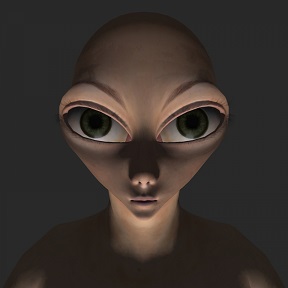This is Faith in Play #39: Of Aliens and Elves, for February 2021.
Fantasy and science fiction are riddled with races. Star Trek offers Vulcans, Klingons, Romulans, Cardassians, Bajorans, and a host of others. Dungeons & Dragons gives us multiple varieties of Elves, Dwarfs, Gnomes, and Halflings, just for starters, and keeps going from there. Even Harry Potter gave us the giants and the centaurs and the house elves. It is inherent in fantasy and science fiction that there are intelligent beings who aren’t human.
This, though, gives us a theological problem: how do they fit into the plan of salvation?

One possible answer is that they don’t. In original Advanced Dungeons & Dragons humans and quite a few demihumans had souls and could be resurrected, returned to life in the same body. Elves, however, did not have souls and could not be resurrected. Instead, they had spirits and could be reincarnated as some other creature. There is an implication that humans have an afterlife on the Outer Planes, but elves do not, continuing their lives in the Prime Material Plane perpetually. Given that, it would follow that elves neither needed nor could receive whatever salvation brought humans into heaven.
A viable alternative is that all the races are in fact related, that by whatever peculiarity the elves are also descendants of the first human, or in the science fiction realm, humanity on earth is descended from a first Adam who was not on earth, and so all intelligent life in the universe is similarly connected through that one ancestor. In one of his short stories, Ray Bradbury suggested that after ascending into the clouds Jesus kept going to carry His message to other planets. Perhaps the connection is such that the gospel applies to all intelligent life forms.
It has been suggested (by C. S. Lewis) that perhaps humanity is the only intelligent life that is lost and in need of saving, or most lost and most in need of saving, and so the rest of the universe is safe because it never fell. St. Paul would seem to think otherwise, but he doesn’t talk about it much so it could be overlooked.
I confess I don’t have an answer to this with which I am fully comfortable. I do think that because it is fiction we can skirt the issue a bit—after all, fictional characters aren’t really lost or saved, even when we say they are. They are only illustrations of being lost or saved. If in our fictional world our soteriology stretches to cover some we would have difficulty covering in our real world, that’s part of what fiction is about: exploring what might be.
As always, I am interested in your solutions to this problem.
Previous article: Places of Worship.
Next article: Harry Potter Series Follow-up.
